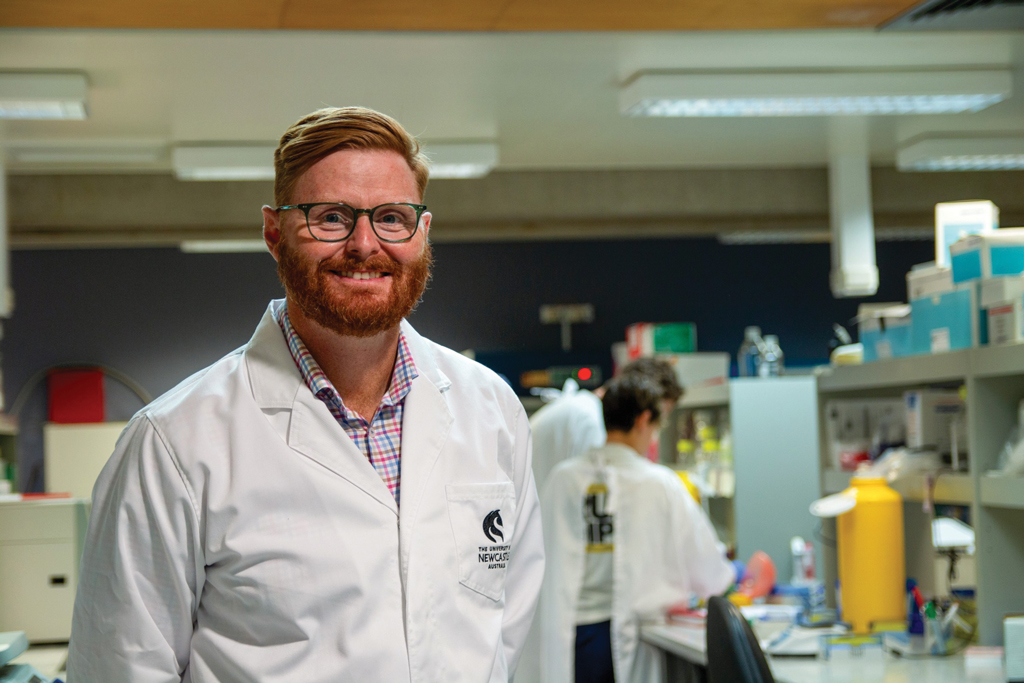
Newcastle uni works to tackle lethal childhood cancer
A University of Newcastle (UoN) research team is now one step closer to tackling the most lethal childhood cancer with support from a new grant.
Diffuse midline glioma, or DMG, is responsible for more cancer-related deaths in children and young adults than any other, with many living less than a year after diagnosis.
The University of Newcastle’s Professor Dun is the lead investigator for the Hunter Medical Research Institute’s Precision Medicine Research Program, who’ve been working on a cure for the disease over the past seven years.
Over time, he and his team have discovered key genetic influences which could act as possible drug targets for DMG.
However, despite recent progress identifying vulnerabilities and completing early-stage clinical trials, limited long-term survival benefits have been achieved.
“We aim to break the cycle of past failures by administering sequential treatments that exploit tumour-specific vulnerabilities,” said Professor Dun.
Now, a $2 million from the NHMRC Medical Research Future Fund, has given the team a chance to work on a new method of treatment.
Their new project will use cutting-edge technologies, including artificial intelligence, to try and improve outcomes for children with DMG.
“Our vision is to establish effective, life-sustaining treatment options for patients by harnessing tumour and immune cell signatures in response to treatment,” he explained.
With the funds, the team will develop the DMG-Advanced Machine-learning Precision Treatment Strategy, or ADAPTS for short, to guide therapeutic management of patients with the disease.
Using cell profiling technology, ADAPTS will “identify optimal treatments and predict sequential and temporal adjustments”.
“Our goal is to find solutions that offer these children a chance at life,” he said.
Find more community stories in our Autumn edition of Hunter & Coastal Lifestyle Magazine or subscribe here.
Story Olivia Goeldner

